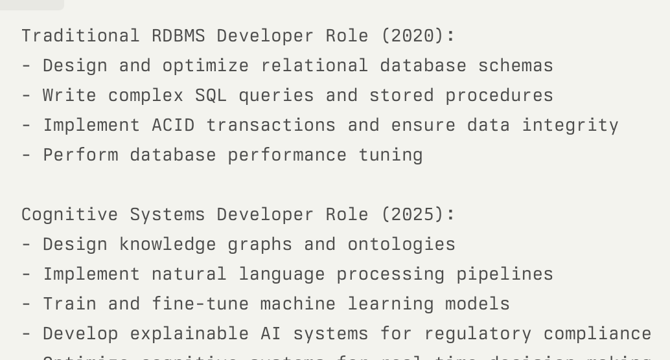Medium
2d
287

Image Credit: Medium
The Cognitive Computing Revolution: How & Why Application Development has Fundamentally Changed, &…
- The world of software development is transitioning from procedural programming to cognitive computing, representing a significant revolution in how software is conceived and built.
- Large language models like GPT-4 can now write complex code and companies are shifting to AI-augmented approaches rapidly.
- Developers deeply versed in procedural programming face an existential challenge in adapting to cognitive systems.
- Procedural programming is based on explicit instructions, deterministic logic, rigid structure, and static knowledge, which contrast with cognitive computing's non-linear problem-solving, context-aware processing, and adaptive learning.
- The shift towards cognitive computing requires a fundamental recalibration of how developers approach problem-solving and design solutions.
- Understanding the Document Object Model (DOM) serves as a bridge between procedural and cognitive paradigms.
- Cognitive computing systems differ by representing knowledge, reasoning under uncertainty, and continuous learning and adaptation.
- Natural Language Understanding (NLU) and Natural Language Processing (NLP) are transformative applications of cognitive computing.
- Developers transitioning to cognitive computing must adopt probabilistic thinking, focus on knowledge representation, and understand ethical implications.
- The article emphasizes the need for developers to acquire new technical skills in machine learning, natural language processing, and cognitive architectures.
Read Full Article
17 Likes
For uninterrupted reading, download the app